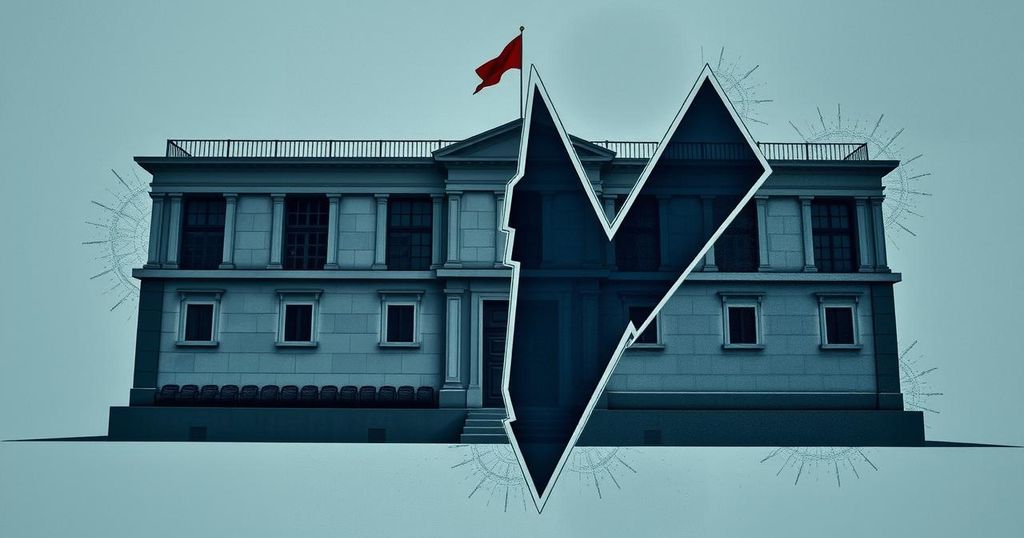Portugal Election Results: Ruling AD Falls Short of Majority, Chega Gains Ground
In Portugal’s recent election, the ruling Democratic Alliance won the most votes but did not achieve a parliamentary majority. Significant gains for the far-right Chega party were reported. Ongoing issues like immigration and housing crises dominate public discourse amid a backdrop of political instability.
Portugal’s ruling party, the Democratic Alliance (AD), secured the most seats in Sunday’s general election but fell short of a majority once again. Nearly complete official results indicate that the AD received 32.7% of the vote, yet this is notably below the 42% needed for a clear majority. The Socialist Party and the far-right Chega party followed with 23.4% and 22.6%, respectively. Four seats are still to be assigned in the 230-seat parliament, which leaves the AD needing to negotiate with smaller parties for support.
In the previous election held in 2024, the AD only managed to capture 29% of the votes, which resulted in a minority government that collapsed earlier this year. Luis Montenegro, the AD leader and current prime minister, has firmly stated that he will not collaborate with Chega to establish a coalition. Additionally, the pro-business Liberal Initiative (IL) is expected to secure between 4% and 8% of the votes, contributing to the complex negotiations ahead for the AD.
Portugal is experiencing a pronounced political crisis, with this election marking the third in as many years. The recent ballot was called abruptly, just a year into Montenegro’s term, following a failed confidence vote in March. Opposition parties had raised concerns regarding Montenegro’s integrity, mainly due to his family’s consultancy business. However, most voters seemed to brush aside these criticisms, according to polls.
The rise of Chega presents another challenge for AD. This far-right party is projected to exceed forecasts of 18% in the election, despite uncertainties stemming from health issues surrounding its leader, Andre Ventura, who was hospitalized recently. Ventura managed to appear at the party’s final campaign rally, signaling the party’s continued popularity due to its hardline stance on immigration.
This election has been notably shaped by public concerns over housing and immigration. Over the last decade, Portugal has witnessed a turbulent political landscape, characterized mostly by fragile governances. Only one government has achieved a parliamentary majority, and that as well fell apart prematurely during its term. Immigration has surged dramatically, with legal immigrants increasing from fewer than 500,000 in 2018 to over 1.5 million by early 2025. A significant number are Brazilians and Asians engaging in agriculture and tourism.
At the same time, the country struggles with a housing crisis. House prices have been on an upward trajectory for ten years, heavily influenced by an influx of expatriate workers. In 2022, house prices increased by another 9%, and rents in Lisbon soared over 7%, marking the highest jump in thirty years. This crisis is exacerbated by Portugal’s status as one of Western Europe’s least affluent nations, with the average monthly income at around €1,200 before tax, and a minimum wage set at €870 a month.
This recent election in Portugal has underscored the ongoing political turmoil, as the ruling Democratic Alliance failed once again to secure a majority. With increasing support for the far-right Chega party and pressing societal issues like housing and immigration, the challenges facing Montenegro are significant. Negotiations with smaller parties will likely be essential to achieve a stable governmental structure moving forward.
Original Source: www.dw.com




Post Comment